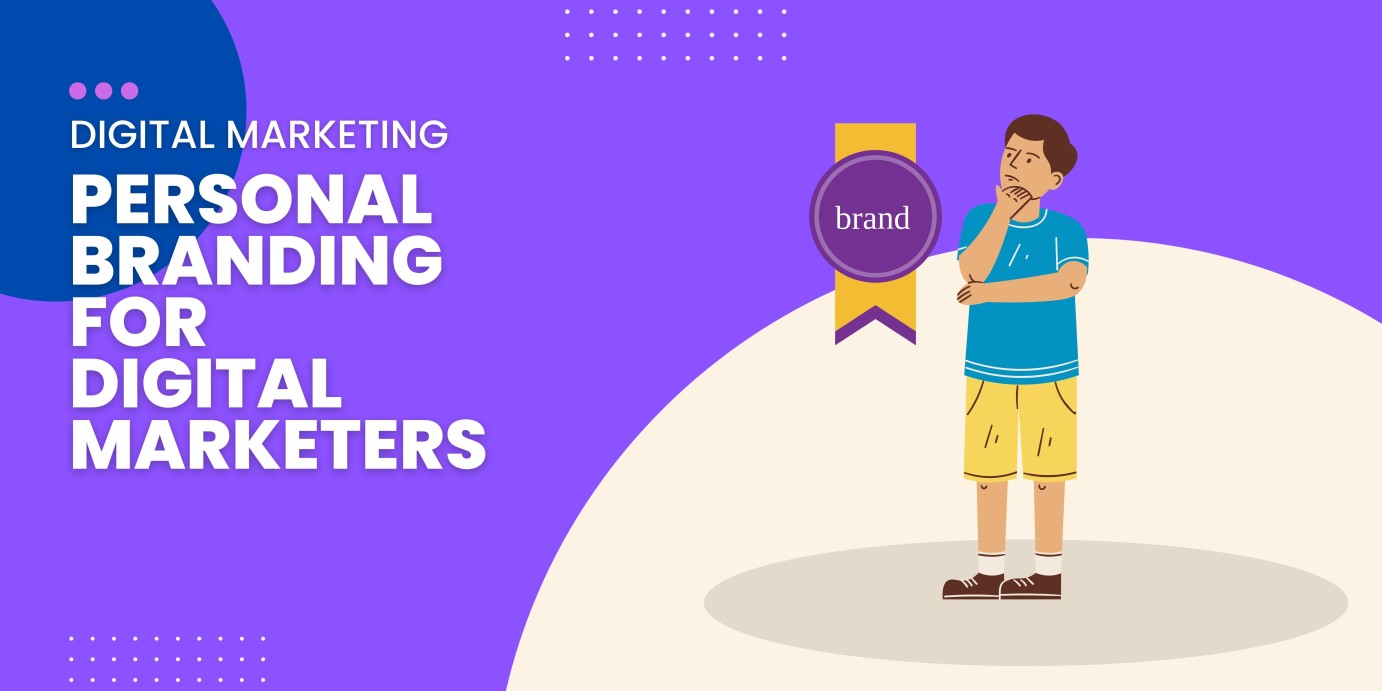As a digital marketer, building a strong personal brand can significantly enhance your career. Personal branding establishes your unique identity, showcases your expertise, and helps you stand out in a competitive industry. In this article, we will explore the importance of personal branding for digital marketers and provide actionable strategies to help you build and leverage your personal brand effectively.
Why Personal Branding Matters
Personal branding is more than just having a polished online presence. It is about defining and communicating your professional identity and values to attract the right audience and opportunities. Here are some reasons why personal branding is crucial for digital marketers:
- Differentiation: With numerous digital marketers in the industry, personal branding helps you stand out and differentiate yourself from the competition.
- Credibility: A strong personal brand builds trust and credibility among your audience, making them more likely to engage with your content and services.
- Career Advancement: Personal branding can open doors to new career opportunities, such as speaking engagements, consulting gigs, or job offers.
- Thought Leadership: Building a reputable personal brand positions you as a thought leader in your niche, attracting industry recognition and collaboration opportunities.
- Network Expansion: A well-established personal brand allows you to connect with like-minded professionals, potential clients, and influential figures in the industry.
Strategies for Building Your Personal Brand
Building a personal brand requires consistent effort and strategic execution. Here are some strategies to help you establish and grow your personal brand as a digital marketer:
- Define Your Brand Identity: Start by defining your unique value proposition, target audience, and the specific areas of digital marketing where you excel.
- Create a Professional Website: Build a professional website to showcase your portfolio, blog, testimonials, and contact information. Optimize it for search engines and ensure it reflects your personal brand identity.
- Consistent Social Media Presence: Establish a strong presence on relevant social media platforms where your target audience is active. Share valuable content, engage with your followers, and maintain a consistent brand voice.
- Content Creation: Produce high-quality content that demonstrates your expertise and provides value to your audience. This can include blog articles, videos, podcasts, or social media posts.
- Guest Blogging and Speaking: Contribute guest articles to industry publications or speak at conferences and webinars to expand your reach and establish yourself as an authority.
- Engage in Online Communities: Participate in relevant online communities, forums, and social media groups to share insights, answer questions, and network with peers and potential clients.
- Collaborate with Influencers: Partner with influential figures in the digital marketing industry to co-create content, host webinars, or collaborate on projects. This can help you tap into their audience and gain exposure.
- Seek Testimonials and Reviews: Request testimonials and reviews from satisfied clients or colleagues to showcase your skills and build social proof.
- Continuous Learning: Stay updated with the latest trends and advancements in digital marketing through continuous learning. Share your knowledge and insights with your audience to establish yourself as a trusted resource.
Managing and Leveraging Your Personal Brand
Building your personal brand is an ongoing process. It requires consistent effort, monitoring, and adaptation. Here are some tips for managing and leveraging your personal brand effectively:
- Monitor Your Online Reputation: Regularly monitor your online presence and respond to comments, messages, and mentions promptly. Address any negative feedback professionally and seek opportunities for improvement.
- Network and Collaborate: Build relationships with other professionals in the industry, both online and offline. Look for collaboration opportunities, joint ventures, or co-marketing initiatives to expand your reach.
- Continuously Learn and Grow: Stay updated with the latest trends, tools, and strategies in digital marketing. Invest in professional development and certifications to enhance your skills and credibility.
- Measure Your Success: Set measurable goals for your personal branding efforts and track key metrics such as website traffic, social media engagement, and conversions. Use this data to refine your strategies and focus on what works best.
- Stay Authentic: Be true to yourself and your values throughout your personal branding journey. Authenticity builds trust and attracts genuine connections.
Conclusion
Personal branding is a powerful tool for digital marketers to establish themselves as industry leaders, attract new opportunities, and build a successful career. By defining your brand identity, creating a strong online presence, producing valuable content, engaging with your audience, and continuously improving your skills, you can elevate your personal brand and stand out in the digital marketing landscape. Remember, personal branding is a long-term investment that requires consistency and authenticity. Start building your personal brand today and unlock new doors of success.

